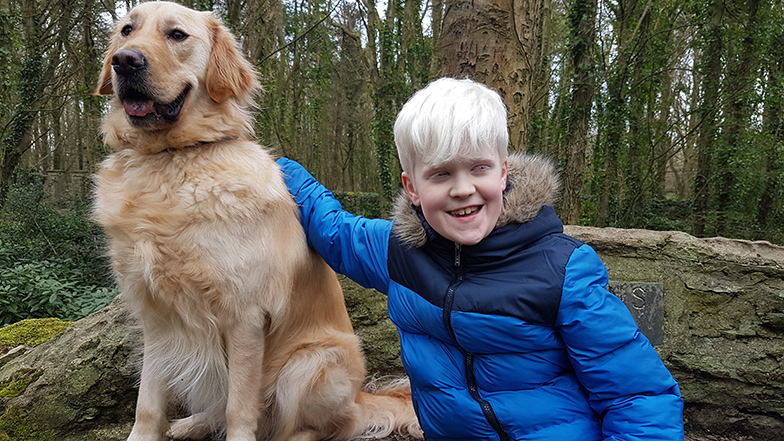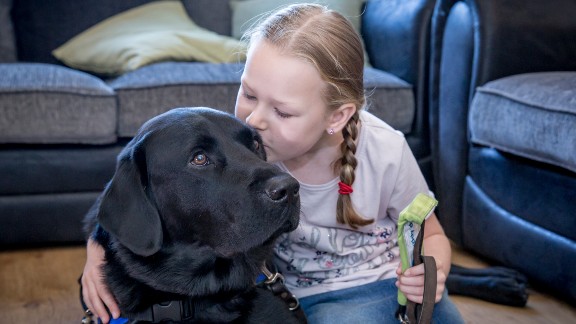Buddy dogs for children
Our buddy dogs bring a new friend into the lives of children with sight loss. By helping to develop their self-confidence, improve relationships and build a greater sense of trust, these dogs can have a hugely positive effect on your child’s wellbeing – and your family, too.
A buddy dog is:
- a friendly, well-behaved pet dog
- here to help your child increase their physical activity, build confidence, create better relationships with others, and develop a sense of fun and trust
- a great way to show your child the responsibility of caring for a dog
- owned by Guide Dogs
- looked after and paid for by your family, including vets’ bills and insurance
Everything has been amazing since our buddy dog Dan came along; Logan has so much more confidence. All I wanted for him is to be able to go out, have fun and enjoy life – and that’s exactly what we’re now doing.
A buddy dog is not:
- a guide dog, so they should never be used as a mobility aid or for sighted assistance
- legally allowed anywhere a pet wouldn’t be, such as in schools. Some places may let them in, but it’s their choice – they don’t have to
- to be walked by your child on their own – an adult must always be holding on to the lead
- allowed in social situations with your child on their own, without a responsible adult
- owned by your family
Sam is like my best friend, but a dog. He helps me do everything.

Buddy dogs gave Ellis the confidence to talk about his eye condition
Ellis has always loved dogs so when his first buddy dog, Tweedie, came along they instantly connected. Now Ellis has buddy dog Ralph, who gives him someone to talk to and helps him feel better about his vision impairment.
In this section...
Ready for a buddy dog?
To start your application, please contact the team on


